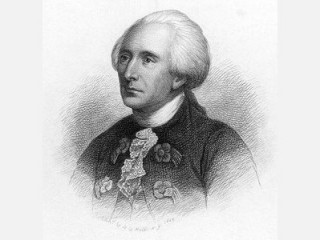
Arthur Lee biography
Date of birth : 1740-12-20
Date of death : 1792-12-12
Birthplace : Eton, Edinburgh
Nationality : American
Category : Politics
Last modified : 2010-12-13
Credited as : Diplomat, propagandist of American Revolutionary War,
Arthur Lee was a propagandist for the American Revolutionary cause and an agent in Europe for the Continental Congress.
Arthur Lee was a member of the famous Lee family of Virginia and the younger brother of two signers of the Declaration of Independence, Richard Henry Lee and Francis Lightfoot Lee. Arthur was educated in the British Isles at Eton, Edinburgh (where he received his doctor of medicine degree in 1764), and the Middle Temple. He was admitted to the bar in 1775. During the decade preceding 1776, he was an impassioned propagandist for American rights. He wrote numerous political pamphlets and letters and staunchly defended the English radical John Wilkes. He was Benjamin Franklin's rival as America's chief spokesman in Great Britain.
In 1775, as confidential agent of the Continental Congress, Lee began a series of negotiations with the French and Spanish to secure desperately needed war materiel for the American army. A year later he was appointed one of three commissioners to negotiate a French alliance. As the other commissioners, Franklin and Silas Deane, energetically, ingeniously, and perhaps compromisingly made contracts to start guns and supplies across the Atlantic, spasms of suspicion seized Lee. He believed that Deane, especially, and various scheming Frenchmen were reaping huge, dishonest profits at the expense of American patriot blood and treasure. Lee thought that Franklin aided the plots by boudoir intrigues in Paris and pettifogging letters home. To expose all this, Lee made furious accusations to Congress, which resulted in 1778 in Deane's recall just as the commissioners signed the long-sought French alliance.
Though Lee's charges led to Deane's disgrace and perhaps restrained war profiteering, their principal effect was to divide Congress into warring factions. Lee found ready support from his brothers and their New England allies (especially John and Sam Adams), who were ready to believe the worst about Franklin. The "Lee-Adams faction" preferred to minimize American connections with Europe and to depend instead on simple American courage and perseverance.
In general, however, Lee found Congress cool both to his accusations and to his view of American national policy in the 3 years he served as a Virginia delegate (1781-1784). After vigorously opposing the Federal Constitution, he spent his last years as a Treasury board official (1785-1789) and in embittered retirement in Virginia.
Letters related to Lee's public career are in Francis Wharton, ed., The Revolutionary Diplomatic Correspondence of the United States (6 vols., 1889), and Edmund C. Burnett, ed., Letters of Members of the Continental Congress (8 vols., 1921-1936). There is no adequate biography of Lee. Richard H. Lee, Life of Arthur Lee (2 vols., 1829), though eulogistic, inaccurate, and expurgated, contains details on his life and long selections from his correspondence. Relevant material on Lee's family appears in Burton J. Hendrick, The Lees of Virginia: Biography of a Family (1935).
Potts, Louis W., Arthur Lee, a virtuous revolutionary, Baton Rouge: Louisiana State University Press, 1981.
















